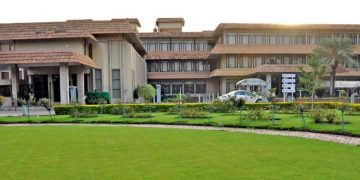Despite the passage of two weeks to an understanding between Pakistan and the International Monetary Fund (IMF) on the federal budget for 2022-23, leading to a revival of the extended fund facility (EFF), the international lender is delaying the payment of tranche to Pakistan, creating uncertainty in the market.
The understanding was reached during a meeting, held via video link, between the IMF staff mission and the Pakistani economic team, led by Finance Minister Miftah Ismail.
Pakistani authorities agreed with IMF to generate Rs436 billion more taxes and increase petroleum levy gradually up to Rs50 per litre, increasing electricity, gas price, tax on salaried class, one wonder what else Pakistan has to do to appease and make IMF agree to transfer the loan tranche?
The delay in the tranche payment is creating uncertainty among the investors of PSX and fluctuation of the US dollar against the Pakistani rupee, which is ultimately turning the economic woes of Islamabad, worst.
The IMF is also expected to issue a statement confirming substantial progress on the fiscal framework, the two sides agreed. Top government sources said that to win over the IMF mission, the Pakistani side had agreed to start charging on all POL products a petroleum development levy which will be gradually increased by Rs5 per month to reach a maximum of Rs50.
In yet another retreat, the government also agreed to impose 1pc poverty tax on firms earning Rs150 million, 2pc on those earning Rs200m, 3pc on over Rs250m and 4pc on Rs300m above. In the original budget, the government had set a 2pc poverty tax only on those earning Rs300m and above.
The government also agreed to do away with provisions for additional salaries and pensions, for which Rs200bn had been set aside as block allocation. Instead, a separate allocation of contingencies had been made but that would be strictly meant for emergencies likes floods and earthquakes so that amount remains unspent.
Pakistan also committed to deliver a Rs152bn primary budget surplus, which means the revenues would finance all expenditures — other than interest payments — and still leave Rs152bn surplus in the national kitty.
Though Pakistan has got $2.3 billion from the Chinese banks, but the revival of the IMF programme is a must for Pakistan as it will pave way for other international lender firms to help Pakistan. Here the question arises why the IMF is delaying the payment despite assurances and confirmation by PM Shehbaz and Finance Minister Miftah Ismail. Is there any more demands that have to be fulfilled by Pakistan?


























